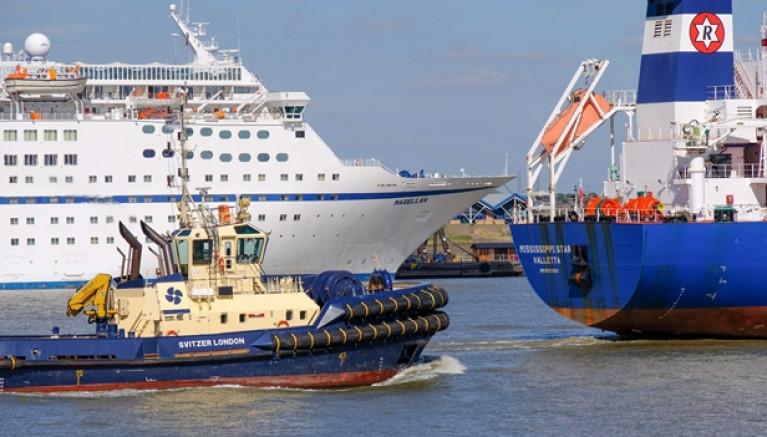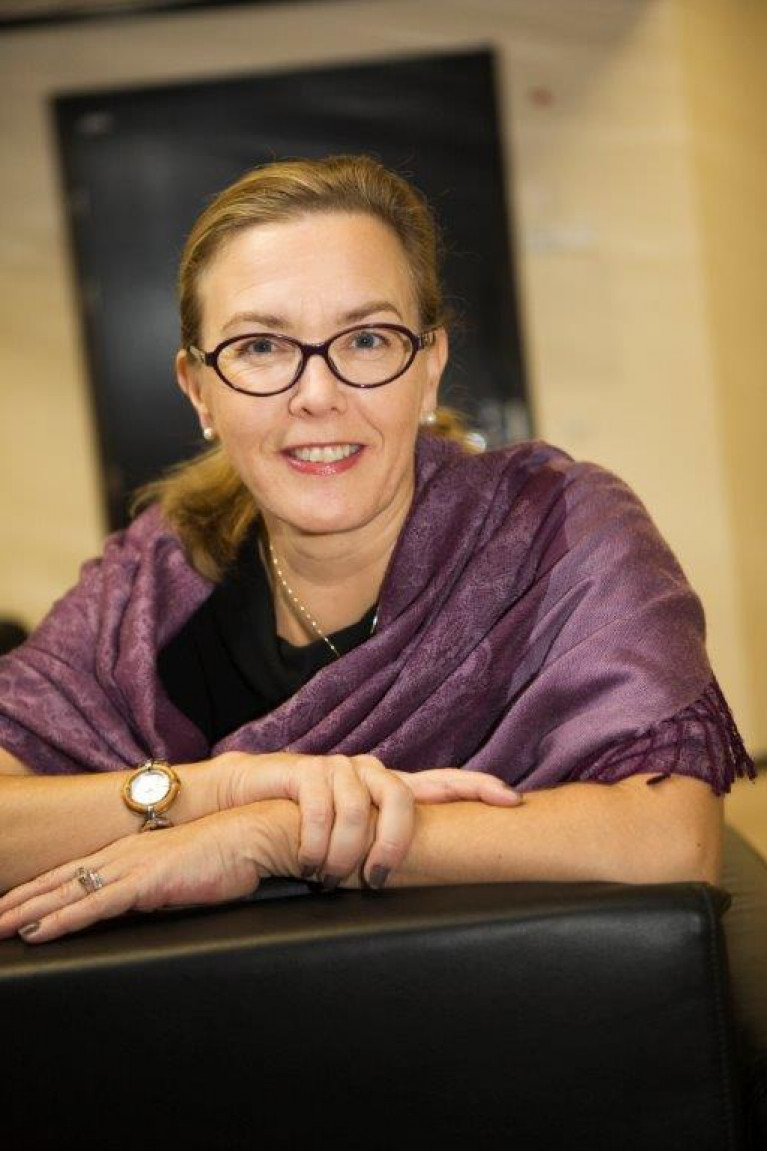Displaying items by tag: New Chair
Trinity House Appoints New Chair on Lighthouse Board
Trinity House, the General Lighthouse Authority for England, Wales, and the Channel Islands, has appointed Lance Batchelor as the Chair of its Lighthouse Board, succeeding Sir Alan Massey.
Since becoming an Elder Brother in 2022, Lance has been sitting as a trustee on the Corporate Board as well as the Corporate Investment and Estates Committee; he was also Chair of the Corporate Audit and Risk and the Corporate Remuneration Committees.
In order to focus on his new role on the Lighthouse Board, he has relinquished his positions on the above committees.
Lance brings a wealth of leadership experience to the Lighthouse Board, having previously been Chief Executive at Tesco Mobile, Domino’s Pizza and Saga Cruises.
He is the Chair of Royal Museums Greenwich and the lead external director on the Royal Navy’s board. He served as a submariner in the Cold War and now holds the honorary rank of Captain Royal Naval Reserve (RNR).
Maritime UK Appoints New Chair and Vice Chair
The umbrella organisation for the UK’s maritime sector, Martime UK has appointed Robin Mortimer as its new chair and Tom Boardley as vice chair.
Robin was nominated by the British Ports Association and UK Major Ports Group whilst Tom was nominated by the UK Chamber of Shipping.
Currently CEO at the Port of London Authority, Robin was previously vice chair and replaced Sarah Kenny who served as Chair from 2021.
Robin started his term on 1 January 2023 and will be working with members to help steer the sector through the next two years, with its response to climate change top of the agenda. Maritime UK will be working closely with the government on its refresh to the Clean Maritime Plan, due to be published in 2023.
Maritime UK’s current priorities are the environment, people, regional growth, competitiveness and innovation and works to bring coherence to the sector’s asks of government on these shared priorities as well as delivering programmes and initiatives to help move the dial within each area. Programmes include the Diversity in Maritime programme, careers and outreach programme and Regional Cluster Development programme.
Commenting on his appointment, Robin said:“I am honoured to be taking the Chair of Maritime UK and to be given the opportunity to serve the UK's maritime industries at such a crucial time.
“There is now a much greater appreciation and understanding of the maritime sector within the UK, and how we can support major national missions like, decarbonisation, levelling up and becoming a research and development powerhouse.
“Our task over the next two years is to embed that progress, deliver a robust and tangible Clean Maritime Plan, increase the impact of Maritime UK’s programmes in critical areas like people and bang the drum for UK PLC across the world. All of this whilst responding to challenging headwinds caused by underlying economic conditions and geopolitics.
“I am convinced that by working closer and closer together our sector will thrive, and I look forward to working with the member community to accelerate our progress toward Maritime 2050.”
Maritime UK is the umbrella body for the maritime sector, bringing together the shipping, ports, services, engineering and leisure marine industries. Its purpose is to champion and enable a thriving maritime sector. Maritime UK has responsibility for the coordination and delivery of industry recommendations within Maritime 2050.
Its members are Belfast Maritime Consortium, British Marine, British Ports Association, CLIA UK & Ireland, Connected Places Catapult, Institute of Chartered Shipbrokers, Maritime London, Maritime UK South West, Mersey Maritime, Nautilus International, Port Skills and Safety, Shipping Innovation, Society of Maritime Industries, Solent LEP, The Baltic Exchange, The Seafarers' Charity, The Workboat Association, Trinity House, UK Chamber of Shipping and the UK Major Ports Group.
European Sea Ports Organisation's General Assembly Sees Election of New Chair - Zeno D'Agostino
At the European Sea Ports Organisation (ESPO)'s General Assembly, delegates unanimously elected Zeno D’Agostino as its new chair.
Mr D’Agostino is President of Port Network Authority of the Eastern Adriatic Sea since 2015 and has a long-standing career in transport and logistics. He succeeds Annaleena Mäkilä who chaired the organisation during the last two years.
The General Assembly which took place yesterday also saw the re-election of Daan Schalck, CEO of North Sea Port as Vice Chair while Ansis Zeltiņš, CEO of the Port of Riga, has become the second Vice Chair.
Upon his election, Mr D’Agostino said: “I am honoured to have received this prestigious appointment. I would like to thank first and foremost Annaleena Mäkilä and all those who believed in me and my work during my years as vice-president. We are living in difficult times, during which the role of European ports is becoming crucial for the economic and geopolitical balance at both the European and global scales. We are playing a leading role in many epoch-making challenges, such as the energy transition. It is therefore essential for the European port system to take on these challenges with a shared approach and concrete proposals. I am talking about solutions to be identified through constant dialogue with the European policy makers.
ESPO has been and continues to be the right tool to pursue these goals, adapting European policies and strategies to the challenging times we are experiencing in order to achieve the results we all hope for. From the energy transition to the governance of the ports of tomorrow, there are numerous aspects of innovation that will need to be pursued, and we will do so with a steady hand on the helm. We will also improve our communication efforts, in order to reach a wider audience than just our sector. Indeed, the citizenry is growing more aware and interested in the crucial importance of our sector. In moments of crisis such as this one, when we are exposed to constant shocks, ESPO can play a key role as a natural advocate for the interests of Europe’s ports”.
Also yesterday saw the ESPO published its Annual Report 2021-2022, which outlines the activities of the organisation over the past year. A copy of the report can be found here.
ESPO will disclose the winner of the ESPO Award 2022 on Societal integration, during a ceremony and dinner being which was held last night in the BOZAR in Brussels.
Four projects have been shortlisted: the projects of ports of Ceuta (Spain), Barcelona (Spain), Tallinn (Estonia) and the cooperation project of the ports of Ancona, Ravenna, Venice, Trieste, Rijeka, Zadar, Split and Dubrovnik (Italy and Croatia).
In the UK, the Secretary of State for Transport has appointed Christopher Rodrigues CBE as the new Non-Executive Chair of the Maritime and Coastguard Agency (MCA).
The government agency charged with further enhancing the UK’s position at the forefront of global shipping.
Mr Rodrigues brings extensive international experience as a chair of public, private and government sector bodies in tourism, the arts and public diplomacy and since 2016 as chair of the Port of London, Britain’s largest port.
His leadership will contribute to the MCA’s ongoing plans to transform the agency as it works on innovation and regulation, while seeking to grow the UK Flag and helping boost the maritime economy.
The Secretary of State for Transport made the appointment, which is the second since the role was first mooted as a key recommendation in Lord Mountevans’ Maritime Growth Study published during London International Shipping Week ISW 2015 .
Transport Secretary Grant Shapps said: “I’d like to welcome and congratulate Christopher, who joins the Maritime & Coastguard agency at an exciting time for the agency and a hugely important moment for the UK as we look to our recovery from Covid-19.
“I am very grateful to Michael Parker, the first MCA Chair for the work he has done in establishing its remit, but also for the direction he has given to the organisation over the past four years.
“This appointment is part of a wider commitment to generate growth in the maritime sector, encourage greater investment in the UK and promote the UK flag as a world-class register that attracts quality ship owners”.
This announcement coincides with the start of the countdown to London International Shipping Week (LISW) 2021 which will bring together global leaders from the maritime industry and showcase the best of the sector in the UK.
Christopher Rodrigues CBE said: “I am delighted to be taking up the role and look forward to supporting the MCA team as they adapt to the changing needs and commercial requirements of international shipping and maintain the great traditions of HM Coastguard.
“The UK is a world leading maritime nation. Ensuring that the MCA provides an effective and responsive service is central to retaining this position.”
MCA Chief Executive Brian Johnson said: “I very much welcome this appointment. Christopher will bring a wealth of experience and expertise to the Maritime & Coastguard Agency and we all look forward to working with him.”
The maritime sector contributed at least £17 billion to the UK economy in 2017 and supports at least 220,100 jobs across the country.
Finnish Woman Succeeds Irishman As New Chair of European Sea Ports Organisation (ESPO)
A Finnish woman has unanimously been elected as Chair following a vote of the European Sea Ports Organisation (ESPO)'s General Assembly in Brussels, Belgium today.
Annaleena Mäkilä has been the Managing Director, CEO of the Finnish Ports Association since 2012. She succeeds Eamonn O’Reilly, who chaired the organisation during the last four years. Afloat adds O'Reilly was re-elected as chair of EPSO two years ago whilst also in the role of chief executive of the Dublin Port Company.
The General Assembly also elected Zeno D’Agostino and Daan Schalck as Vice-Chairs of the organisation. Mr D’Agostino, who is currently President of the Port Network Authority of the Eastern Adriatic Sea, starts a second term in that role. Mr Daan Schalck is CEO of North Sea Port.
Upon her election, Mrs Mäkilä said: “I am proud to be elected as Chair of this strong organisation and unique network of port professionals representing the common interests of all European ports. As economic players, ports in Europe will be facing challenging times. In this rapidly changing world, ports will need to readily respond to sudden changes and challenges.
“During the current crisis, ports have proven to be agile and resilient. Europe’s ports are in a unique position to play a positive role in achieving Europe’s ambitions for a Green Recovery. Being at the centre of different strategies, ports need a policy framework that allows them to play their role in line with the European goals.
"I look forward to working with the ESPO team, all ESPO members, as well as with Zeno and Daan in further promoting the importance of ports as engines of growth and recovery and defending our industry’s interests in Brussels.”
Another notable event today saw ESPO publish its Annual Report 2019-2020 as Afloat previously reported.The report outlines the activities of the organisation over the past year. A copy of the report can be found here.
At 6 pm (CET) today, ESPO will disclose the winner of the ESPO Award 2020 on Societal integration. Adina Vălean, European Transport Commissioner, will announce the winner in a dedicated virtual ceremony.

























































